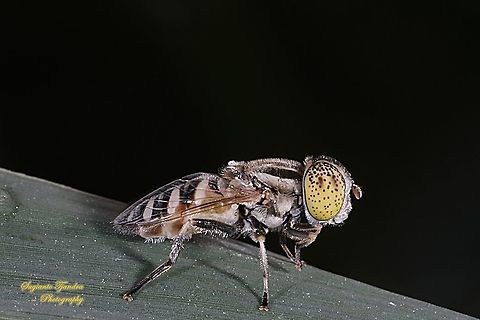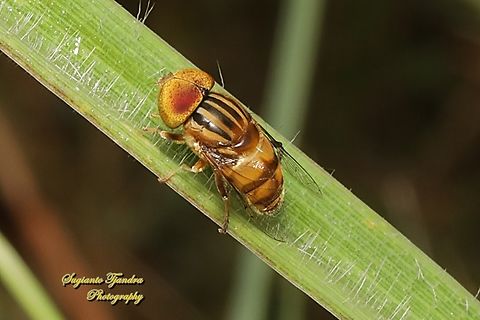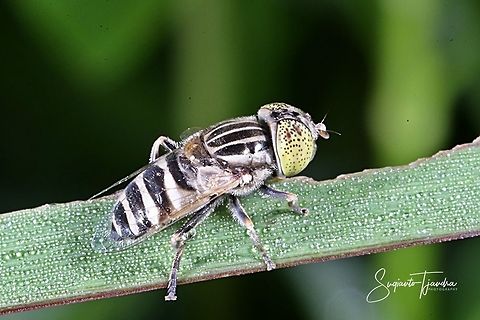
Appearance
''Eristalinus megacephalus'' has a black abdomen and golden horizonal stripes larger in males. It has a black thorax, legs with black tips, transparent, flexible wings, a large head and golden compound eyes with pale purple spots. Being about 8–11 mm long, it is a good pollinator, and uses Batesian mimicry to look like hymenopteran bees and scare away predators. Its appearance is also similar to bee flies . The species is listed in 2: 63 of Rossi's publication ''Mantissa insectorum''. There are no subspecies. It is the rarest species of the genus ''Eristalinus'', and is common but not abundant.The species's flight period is from May to October, and is most plentiful from June to July.

Naming
The word ''megacephalus'' consists of the prefix ''mega-'' and the suffix ''-cephalus''. ''-Cephalus'', derived from New Latin, means an unusual condition of the head. ''Mega-'' , a metric system prefix describing one million of the base word, is used to emphasize the largeness or greatness of an object. The prefix is derived from Greek ''megas'', which means huge and powerful.
Distribution
''E. megacephalus'' can be found in most countries, including South Africa, Egypt, Sri Lanka, China, Taiwan, India, Java, Guam, Southern Spain, Turkey, North Africa, Iran, and coastal parts of Italy.References:
Some text fragments are auto parsed from Wikipedia.